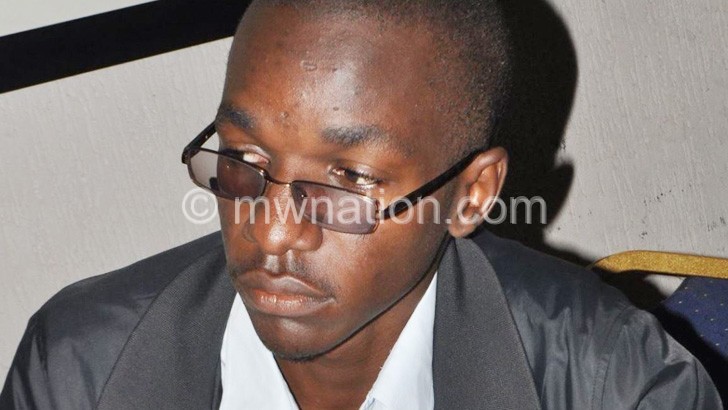Learning from July 20 killings
Police killed 20 protesters during the July 20 2011 anti-government demonstrations catalysed by dictatorial tendencies and economic hardships. Seven years on, the recommendations of a presidential commission of inquiry are gathering dust. Amid mass protests stirred by disputes over the May 21 Tripartite Elections, our Staff Reporter AYAMI MKWANDA engages governance expert Makhumbo Munthali on the neglected recommendations.

Has the country implemented the recommendations in the July 20 inquiry?
No. Not really. Some of the key challenges associated with the recent demonstrations have largely to do with our continued failure to act on the observations and recommendations made by commission of inquiry of July 20 2011. For example, the commission of inquiry recommended to the district commissioners and chief executive officers of local councils to avoid delaying tactics when they receive notices of demonstrations. But what we have noticed is that chief executives, especially from Blantyre City Council, have often been abused by the governing DPP to block notifications of demonstrations from civil society organisation [CSOs]. This regrettable and unconstitutional act has led to tensions manifested by violence during demonstrations after the notification has been granted.
What do you make of the governing party’s tendency of organising parallel events on the eve or the day of anti-regime protests?
In clear contravention of the commission of inquiry recommendations, we have also seen the DPP holding parades on the eve of CSOs demos or threaten to celebration parades on the same day of CSOs demonstrations. In addition, the inquiry report recommended that the police should be professional by serving all Malawians by refraining from being seen as an arm of the ruling party.
Contrary to the recommendations, we have seen the police in recent demonstrations acting more or less like a governing party military arm. Not only did the police unnecessarily fire teargas at Malawi Congress Party [MCP] headquarters in Lilongwe during protests but also the Police chief Rodney Jose has often rejected requests by CSOs to dialogue with him simply because the CSOs strongly lobbied against his name’s approval in Parliament as police Inspector General based on his alleged role in the murder of Robert Chasowa.
The 2011 inquiry faulted the police on crowd management. Have they learnt anything from the way they handled the bloody demonstrations?
Not much. As if this is not enough, the selective manner in which the police has handled some political violence during the campaign era, shielding those connected to the governing party in the process, has left a lot to be desired. All this coupled with the failure of the police to ably control the large crowds during demonstrations in the process leading them to unnecessarily firing teargas against protesters has led to a decline in as far as the public trust in police is concerned. No wonder, Malawi Police Service is currently battling with perception problems where the public views it as the governing party tool to suppress the voice of reason.
We have seen Malawi Defence Force coming in to assist the police. Is this not a voice of no confidence in the law enforcers?
While I strongly believe that the police must have the capacity to handle demonstrations solely without soldiers’ intervention, the recent public preference of MDF to the police in managing the protests should act as an opportunity for the police to do an honest self-evaluation if they are fulfilling their mandate in public interest.
So, you are justifying the military’s role?
Yes, the military can always perform the complementary role to the police in rare special occasions when called upon. However, it must be stated in clear terms that our laws vest such primary responsibility to the police to handle demonstrations as guided by the Police Act and the Constitution. In fact, the 2011 inquiry further proposed for the development of comprehensive guidelines complementing the Police Act to guide the police in handling big crowds in demonstrations. Otherwise, the military interventions in the current protests may to some extent not reflect well on the police. This might as well signal the lack of capacity by the Police in handling these demonstrations and in the process render them irrelevant.
What can the police do to successfully manage future demonstration in this democratic context of ours?
The police must invest much in restoring public confidence in it by, among other things, fully acting on 2011 inquiry recommendations relating to professionalism. Our failure to act on the lessons from the 2011 demonstrations is partly the reason behind problematic demonstrations characterised by violence.
What do you make of government’s delay to compensate the July 20 2011 victims?
It is unfortunate that DPP government continues to ignore compensating the families of those who died fighting against bad governance during July 20 demos. The State is under obligation to compensate families of the victim of State-sponsored violence. The precedence was set with the National Compensation Tribunal which was set up during the transition period in the 1990s and abruptly and prematurely dissolved recently. There is need for stakeholders to demand its reconstitution as a matter of urgency to resolve the bottlenecks which are being faced by families of the July 20 demos. If Mulli Brothers was compensated by the same government, it follows that ordinary citizens are equally entitled to a fair and just compensation from the State.
What is the way forward?
Perhaps it’s time for the DPP government to seriously consider MCP’s manifesto proposal for constituting of a Truth and Reconciliation Commission that will look at addressing compensation-related issues relating to one-party regime as well as July 20. At the end of the day, Malawi needs healing, truth and reconciliation. We cannot continue to pretend that everything is okay by ignoring these calls for compensation for July 20 victims.





